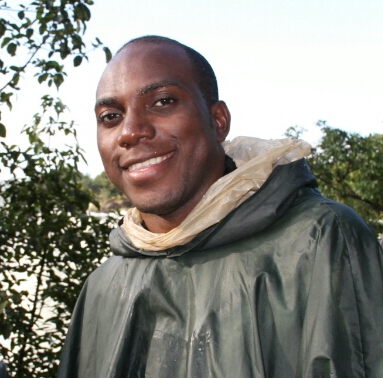Vincent Sakeni, Homerton College, 2014-2015
Vincent is from Mansa in Zambia, and he read Environmental Engineering at the Copperbelt University in Kitwe. Upon completion of his undergraduate studies he worked for a commodity trading firm specialising in industrial base metals; at that trading house, he led the implementation of sustainable approaches to mineral resource exploitation in its downstream business. He then went on to join the environmental management team of ZESCO, an integrated power utility, helping it successfully execute a World Bank funded project on access to electricity for low income households, and a pool of large turnkey undertakings in power generation and transmission.
After a few years of work, and much conferring with his mentors, he realised the need to broaden and deepen his skill set to leverage opportunities that were awash in Zambia’s struggling but improving energy sector, particularly the growing portfolio of new investments in power generation, transmission and energy efficiency that are so critical to the country’s energy security. The ESD MPhil at Cambridge was a natural choice.
Dissertation title:
A Sociological Analysis of Energy Efficiency in the UK Food and Drink Manufacturing Industry.
Students report:
Why did you do the ESD MPhil?
The bottom line was there was, and still is, a need for new and reliable power infrastructure in Zambia, and pretty much many frontier and emerging economies. Therefore, I framed my entire perspective as a two-part question: How could we sustainably bridge the infrastructure gap, and what was my role going to be in that story? I therefore needed the necessary skills and mindset to be a better contributor to my country’s development. And the ESD MPhil fit the bill quite well, as the programme modules and career paths of the course alumni suggested. Of most particular interest was Professor Peter Guthrie’s module on Sustainability Assessment of Large Infrastructure Projects.
The opportunities to gain from the various perspectives of the professional and cultural diversity that is typical of each ESD MPhil cohort, and the impressive pedigree of the faculty at Cambridge were equally just as alluring.
How did it help you?
I had a phenomenal year at Cambridge; a truly life changing experience that perhaps was more satisfying than I never bargained for. The multiplicity of factors and incentives that drive behaviour in the sustainability debate was something I was keen to explore, and such opportunities were available particularly when collaboratively building complex dynamic models on energy sourcing options and energy pricing in developing country contexts with competing resource demands for fresh water and arable land. In reviewing contentious large infrastructure projects around the world and bottom-of-the-pyramid initiatives in Sub-Saharan Africa, I gained tremendous, and still evolving, insight into the challenges and opportunities that ultimately define sustainability agenda notwithstanding the loftiness of policy goals and objectives of state and non-state actors.
This has enabled me to develop an iterative attitude to how I determine the incentives and leverage of key stakeholders in designing and implementing sustainability metrics on energy infrastructure projects that I work on, and what set of approaches – subtle or otherwise – best serve the enhancement of each metric.
What are you doing now?
After the MPhil I returned to my previous job. ZESCO has since seconded me to Norconsult AS – a large Norwegian engineering consulting firm – that is supervising the engineering, procurement and construction activities on the Kafue Gorge Lower Hydropower Project; a 750 MW greenfield undertaking that ZESCO is developing in south-eastern Zambia. My principal role on the consulting team is to ensure the sustainable delivery of this $1.5 billion asset across the entire design, procurement, construction, and commissioning spectrum of its development.

